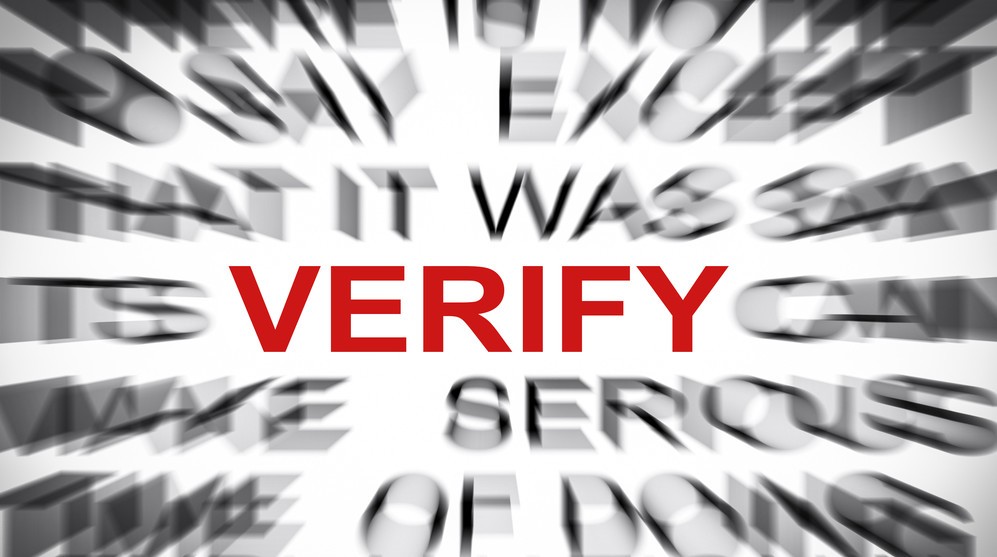What Is an Accredited Investor Verification Provider?

Accredited Investor Verification – Accredited Crowdfunding Under Rule 506(c)
Accredited investor verification is a critical part of the Rule 506(c) also known as the Accredited Crowdfunding exemption. Rule 506(c) of Regulation D of the Securities Act of 1933, as amended allows issuers to engage in general solicitation and advertising of their exempt offering if specific requirements are met. One such requirement is that the issuers comply with accredited investor verification procedures because sales under the rule can only be made to purchasers who are “accredited investors“. Even one sale to a non-accredited investor in a Rule 506(c) offering will prevent the issuer from relying upon the exemption.
Rule 506(c) Generally
Both public and private companies can rely upon Rule 506(c) for their securities offerings. The exemption is commonly used in going public transactions to raise initial capital and obtain a shareholder base. Rule 506(c) allows issuers to raise an unlimited amount of capital and there are no limitations on the number of non-accredited investors who can invest. Issuers may only advertise their Rule 506(c) offering if they verify that sales are made only to accredited investors. One method of doing this is by hiring a third party accredited investor verification provider.
Rule 506(c) Securities Offerings l Verifying Accredited Investor Status
Since Rule 506(c) was adopted and Accredited Crowdfunding has grown in popularity, third party service providers have popped up offering accredited-investor verification services. In order for verification to be comply with Rule 506(c)’s requirements, a third party service provider must review sensitive financial information about the investor’s financial condition. This review and the lack of regulation concerning third party verification providers has raised significant concerns among market participants. The accredited investor verification segment is still relatively new and there are few if any, barriers to entry. It is no surprise to find that there are numerous verification providers readily available through the internet who tout their services but fail to provide meaningful background information.
If the issuer does not want to use a third party verification provider then the issuer should consider all relevant facts and circumstances to determine what methods of verification of accredited investor status are reasonable. Rule 506(c) requires the issuer to undertake an objective verification process to determine accredited investor status. This should include:
♦ the nature of the purchaser and the type of accredited investor that the purchaser claims to be;
♦ the amount and type of information that the issuer has about the purchaser;
♦ the nature of the offering, such as the manner in which the investor was solicited to participate in the Offering, and the terms of the Offering, such as a minimum investment amount.
The SEC has provided a nonexclusive list of verification methods that issuers can use to accredited investor status. These include:
♦ verification based on income, by reviewing copies of any Internal Revenue Service form that reports income, such as Form W-2, Form 1099, Schedule K-1 of Form 1065, and a filed Form 1040 for the two most recent fiscal years and obtaining the investor’s written representation that it has a reasonable expectation of reaching the income level necessary to qualify as an accredited investor during the current year;
♦ a written confirmation from a registered broker-dealer, an SEC-registered investment adviser, a securities attorney or a certified public accountant stating that such person or entity has taken reasonable steps to verify that the purchaser is an accredited investor within the last three months and has determined that such purchaser is an accredited investor; and
♦ reviewing certain documentation, dated within the prior three months, and obtaining the purchaser’s written representation that all liabilities necessary to make a determination of net worth have been disclosed including:
(i) for assets: bank statements, brokerage statements and other statements of securities holdings, certificates of deposit, tax assessments and appraisal reports issued by independent third parties; and
(ii) for liabilities: a credit report from at least one of the nationwide consumer reporting agencies;
♦ for an accredited investor who purchased prior to the effective date of Rule 506(c) and remains an investor of the issuer at the time of the Rule 506(c) offering conducted by the same issuer, obtaining the purchaser’s written certification that the purchaser is an accredited investor.
Issuers who don’t comply with the accredited investor verification rules could find themselves the subject of an SEC investigation. It is important that these procedures be established prior to the offering to ensure appropriate compliance.
For further information about this securities law blog post, please contact Brenda Hamilton, Securities Attorney at 101 Plaza Real S, Suite 202 N, Boca Raton, Florida, (561) 416-8956, by email at [email protected] or visit www.securitieslawyer101.com. This securities law blog post is provided as a general informational service to clients and friends of Hamilton & Associates Law Group and should not be construed as, and does not constitute, legal and compliance advice on any specific matter, nor does this message create an attorney-client relationship. Please note that the prior results discussed herein do not guarantee similar outcomes.
Hamilton & Associates | Securities Lawyers
Brenda Hamilton, Securities Attorney
101 Plaza Real South, Suite 202 North
Boca Raton, Florida 33432
Telephone: (561) 416-8956
Facsimile: (561) 416-2855
www.SecuritiesLawyer101.com






